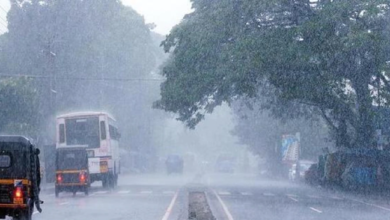Delta to be surpassed by Omicron? According to experts, it has the potential to become a dominant COVID-19 strain in the near future

Washington: As the omicron coronavirus variant spreads in southern Africa and appears in countries around the world, scientists are keeping a close eye on a battle that could determine the pandemic’s fate. Can the latest challenger to the world’s dominant delta displace it?
Based on data from South Africa and the United Kingdom, some scientists believe omicron will win.
“It’s still early days, but data is starting to trickle in, indicating that omicron is likely to outcompete delta in many, if not all, places,” said Dr Jacob Lemieux, who monitors variants for a Harvard Medical School-led research collaboration. “It’s certainly concerning.” Others, however, said on Monday that it’s too early to tell whether omicron will spread faster than delta or, if it does, how quickly it will take over.
“Especially here in the United States, where we’re seeing significant surges in delta, I think we’ll know in about two weeks whether omicron is going to replace it,” said Matthew Binnicker, director of clinical virology at Mayo Clinic in Rochester, Minn.
Many critical questions about omicron remain unanswered, such as whether the virus causes milder or more severe illness and how much it may be able to evade immunity from previous COVID-19 illness or vaccines. Concerning the spread of omicron, scientists point to what is happening in South Africa, where it was first discovered. The speed with which Omicron infects people and gains near dominance in South Africa has health experts concerned that the country is at the start of a new wave that could overwhelm hospitals.
In South Africa, the new variant quickly spread from a period of low transmission, averaging less than 200 new cases per day in mid-November, to more than 16,000 per day over the weekend. According to experts, Omicron accounts for more than 90% of new cases in Gauteng province, the epicentre of the new wave. The new variant is quickly spreading and gaining dominance in South Africa’s remaining eight provinces.
“The virus is spreading very quickly,” said Willem Hanekom, director of the Africa Health Research Institute. “Looking at the slopes of the current wave, it’s a much steeper slope than the first three waves that South Africa experienced. This indicates that it is rapidly spreading and, as a result, may be a highly transmissible virus, as predicted.” However, Hanekom, who is also co-chair of the South African COVID-19 Variants Research Consortium, stated that because there were so few delta cases in South Africa when omicron emerged, “I don’t think we can say it out-competed delta.”
According to scientists, it is unclear whether omicron will behave similarly in other countries as it has in South Africa. There are already some hints about how it might behave, according to Lemieux; in places like the United Kingdom, which does a lot of genomic sequencing, “we’re seeing what appears to be an exponential increase of omicron over delta.” “There’s still a lot of uncertainty” in the United States, as well as the rest of the world, he said. “However, when you combine the early data, a consistent picture emerges: That omicron is already here, and based on what we’ve seen in South Africa, it’s likely to become the dominant strain in the coming weeks and months, causing a surge in case numbers.”
It remains to be seen what this means for public health. According to Hanekom, preliminary data from South Africa show that reinfection rates with omicron are much higher than with previous variants, implying that the virus is evading immunity. It also shows that the virus appears to be infecting younger people, primarily those who have not been immunised, and that most cases in hospitals have been relatively mild. But, according to Binnicker, things could go differently in other parts of the world or with different groups of patients. “It’ll be really interesting to see what happens if more infections occur in older adults or those with underlying health conditions,” he says. “What happened to those patients?”
While the world waits for answers, scientists advise people to do everything they can to protect themselves. “We want to ensure that people have as much immunity as possible from vaccination. So, if people have not been immunised, they should get immunised “Lemieux explained. “If people are eligible for boosters, they should get them, and then do all of the other things we know are effective for reducing transmission – masking, social distancing, and avoiding large indoor gatherings, especially without masks.”






